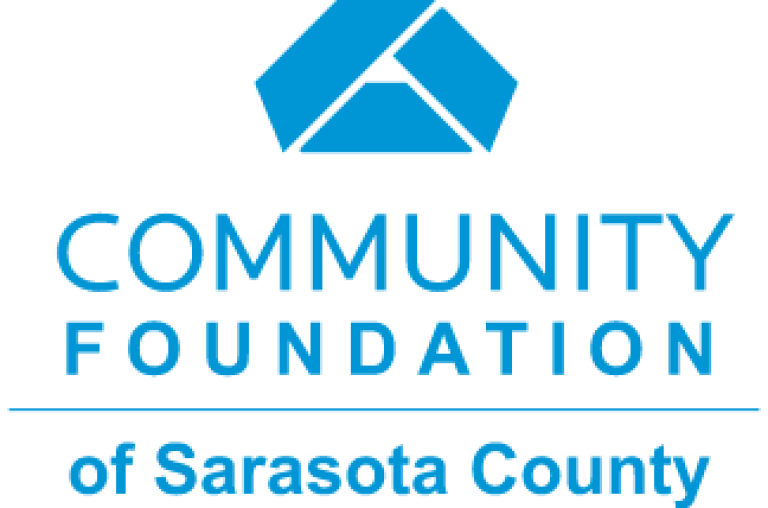April 17, 2023
Helping Out a Person with Epilepsy Should Not Be So Extraordinary: We Can Learn that Lesson from a Phenomenal Big Sister
Categories: Nonprofits,
Editor’s note: This blogpost was written as a part of Ringling College of Art and Design’s Writing for Storytelling for Social Justice and Community Engagement course, fall semester 2022, led by instructor Sylvia Whitman. Students were paired with nonprofits to learn about their mission and impact, and the post that follows shares the story of Epilepsy Services of Southwest Florida.
The project was completed as part of a collaboration with The Glasser/Schoenbaum Human Services Center. Many thanks to Charlene Altenhain and Sarah Glendening, especially, for their coordination of student writers to nonprofit organizations.
_____________________________________________________
When 11-year-old Cassidy Marino got nominated for a “Do The Right Thing” award by the Lee County Sheriff’s Office, she could not have felt more bewildered. She was being honored for helping her little brother cope with a sudden epileptic seizure, an act that felt entirely natural for her. After all, reaching for the anticonvulsant medication and making a quick call did not sound like anything extraordinary. She had assumed that all big sisters, if not all people, would have done the same.
But while growing up, Cassidy realized that her assumption could not have been more detached from the truth. Coming from a family of neurologists, she learned from a young age that epilepsy is a potentially periodic burst of electrical activity in someone's brain, which could manifest through absence, atonic, clonic, myoclonic, or tonic seizures. Most importantly, she knew the condition was widespread, affecting 66 million people worldwide and being potentially developed by 1 in 26 people within their lifetime. Though she thought of these facts as basic knowledge, Cassidy later learned that it was not very common for people outside her family to talk about epilepsy. Lack of general understanding and misinformation about the condition formed barriers for more people to become allies.
Many of her school peers could not define what epilepsy even meant. Though few could reference muscle contractions and jerky movements as potential symptoms, most had no idea what to do if they witnessed somebody having a seizure.
Waiting for someone else to help or running away from the person in need were not the answers that Cassidy wanted to hear. This disappointment led her to become more active in raising awareness about epilepsy. In 2020, during her senior year in high school, she started to volunteer for Epilepsy Services of Southwest Florida, a 501(c)(3) non-profit dedicated to helping uninsured epileptic patients get medical resources such as case management, required medications, and referrals to other institutions in the community. As she learned, the organization aims to empower patients to live as close to a normal life as possible. While Epilepsy Services has offices in four locations (Sarasota, Bradenton, Fort Myers, and Naples) and serves eight different counties, Cassidy focused her efforts at the office in Fort Myers, where her family lives.
Cassidy's main goal was to open a small lending library containing research-based resources about epilepsy. Ideally, she wanted this library to be a learning hub available to all of Epilepsy Services’ clientele, staff, and volunteers. As she mentions, “Learning about epilepsy can be overwhelming, so providing informational material that is accessible and affordable makes the process easier for everyone.” After a year of yard sales, bracelet vending, determined speeches at the annual Epilepsy Walk, and a lot of effort, the project raised $2,236 in donations and was successfully executed in 2021.
Epilepsy Services’ board members were so impressed with what Cassidy had accomplished that they offered her the organization’s youth representative chair, a position that she was happy to accept and continues to hold today. As the youngest person on the six-person board, she brings a fresh and unique perspective to the organization's decision making. Recently, she started to curate Epilepsy Services’ Instagram account to maximize the potential of social media in connecting with young audiences.
After graduating from high school and while continuing her contributions to Epilepsy Services, Cassidy decided to enroll at the University of Florida, where she is now a second-year student. It was not surprising to anyone in her family, certainly not to her little brother, that she decided to register for the pre-med track. Her eagerness to help people around her made it clear that she would one day become a doctor.
Cassidy is interested in various medical realms and has plenty of time to envision a specialization. When asked if she would like to get involved in research about epilepsy, she says, “Absolutely. I would love that!” In the meantime, she will maintain her active allyship in epilepsy advocacy through Epilepsy Services and keep up with being a phenomenal big sister to her younger brother, now in middle school.
There are many ways to follow Cassidy’s step in becoming a good ally to people with epilepsy. Contacting Epilepsy Services of SWFL to become a donor or volunteer are excellent ways to start. Throughout 2022, all donations (between $5 to $500) made to ESSWF will be matched by The Louis and Gloria Flanzer Philanthropic Trust, which is an excellent way to amplify your gift.
Cassidy has one extra piece of advice: “Do not just read about epilepsy; try to meet people who have suffered seizures. Take time to listen to them and their stories. Be there for them. That’s the best way to be an ally.”
